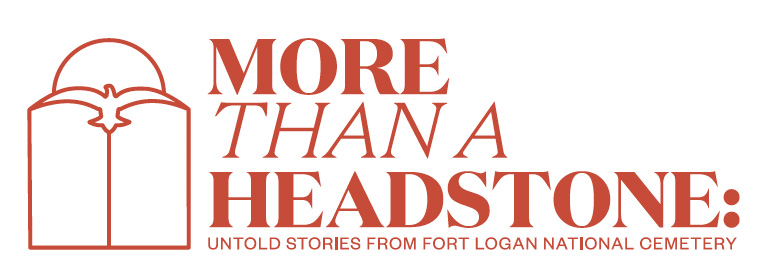Dedicated to Denver Industry
By Charles Lowell and Jared Colucci
Leo F. Arundale
January 31, 1892 – July 16, 1974
Leo F. Arundale was born on January 31, 1892, in Grand Junction, Colorado. He was the oldest of three children and had a younger brother Thomas and a younger sister Elizabeth.[1] Leo was born to William Arundale and Mary A. Riley.[2] Unfortunately, Mary passed away by 1910, when Leo was just 18 and working as a farmhand in Grand Junction.[3] Shortly after 1910, Leo moved from Grand Junction to Denver.[4]
Leo registered for the World War I draft in 1917 and enlisted in the Army as a Private First Class. He served from May 25, 1918 to February 25, 1919, when he was discharged.[5] While it is unclear whether or not Leo experienced battle during the First World War, those soldiers holding the rank of Private First Class were the ones on the front lines.[6] These were the men in the trenches fighting the tough fight in the face of incredible adversity, yet they overcame these obstacles and allowed for the allied powers to overcome the great obstacles of the Central Powers and achieve victory in one of the most horrific conflicts this world has ever experienced. While we as a society have monuments and statues of great individuals such as General Pershing, glorifying the leadership of politicians and other military leaders, we often times forget to consider the so-called “average soldier,” which is truly what allowed for military powers to rise and fall, succeed and fail, and allow for growth in an armed conflict.
After his service, Leo would return to Denver by 1920, a year when he married Katherine Jenson and began work as a truck driver for the gas industry.[7] While trucking may sound mundane, it was far from it. In fact, the trucking industry was the new frontier of economic growth in the United States. Due to the strain placed upon the railroads now under government control during the First World War, society demanded a new form of transportation for their goods. It is estimated that one million trucks were on the road by 1920, [8] which came about from the boom in the automotive industry and the desire to travel via personal vehicles during the Roaring 20s. Leo and Katherine settled down together and began a family, having five children: Ruth, born in 1921; Leo Francis, born on October 16th, 1923; Mary, born on July 26th, 1925; James, born on 1929, and William, born on 1931.[9]
By 1929, the Great Depression was beginning to spread throughout the country. By 1930, Leo had another occupational change, in which he became a paint mixer for the gas and electric industry.[10] It is important to note that while Leo was changing his job responsibilities and sometimes the firm for which he worked, his work after the First World War was always in the realm of the gas and/or electricity sector. This is a rather important aspect to note since the Great Depression called upon many Americans to uproot their “typical line of work” per se, meaning that they were not always able to work in the same sector that they were used to. As the Great Depression called for many changes, Leo was able to weather the storm in the same sector while providing for his family in one of the most difficult times in history. This would change, however, in 1940, when Leo once again experienced an occupational change and became a Stillman in the oil industry, probably due to the increase in demand for oil due to the onset of the Second World War.[11] Leo did register for the draft of the Second World War at the age of 50 in 1942; however, he was never called upon for his services. [12]
After his registration for the draft of the Second World War, there is not much concrete data on his life; however, it can be said that he likely lived the remainder of his life in the Colorado area, with his wife. Leo F. Arundale passed on July 16th, 1974, in Denver, Colorado,[13] and is resting at the Fort Logan Cemetery.










